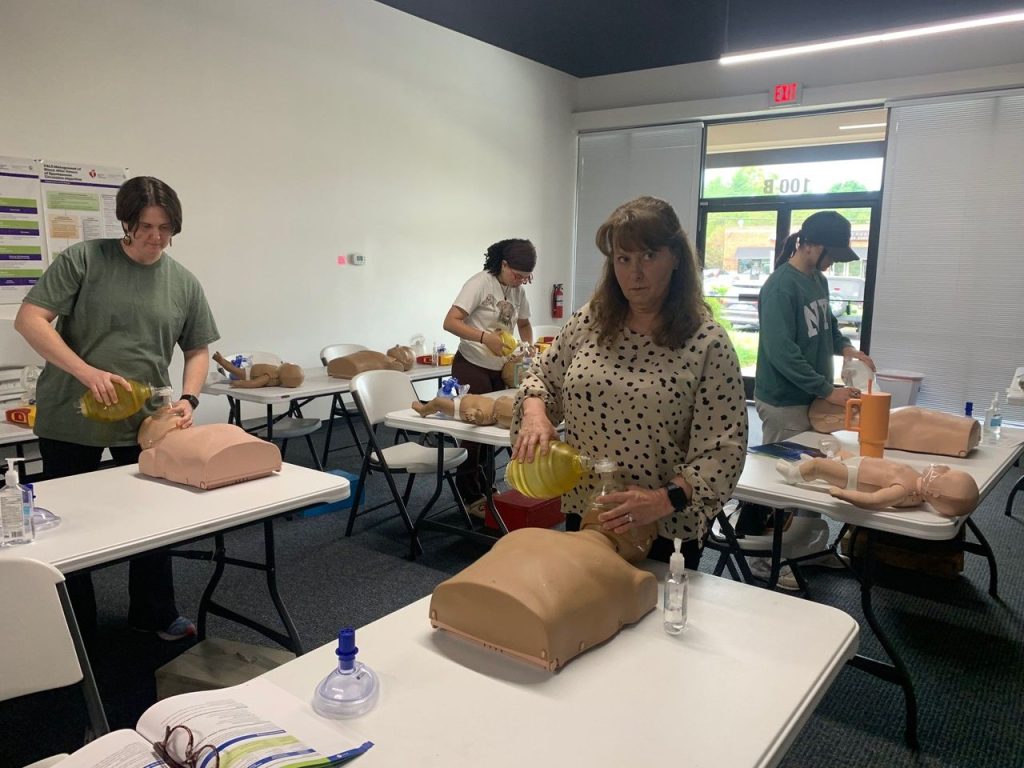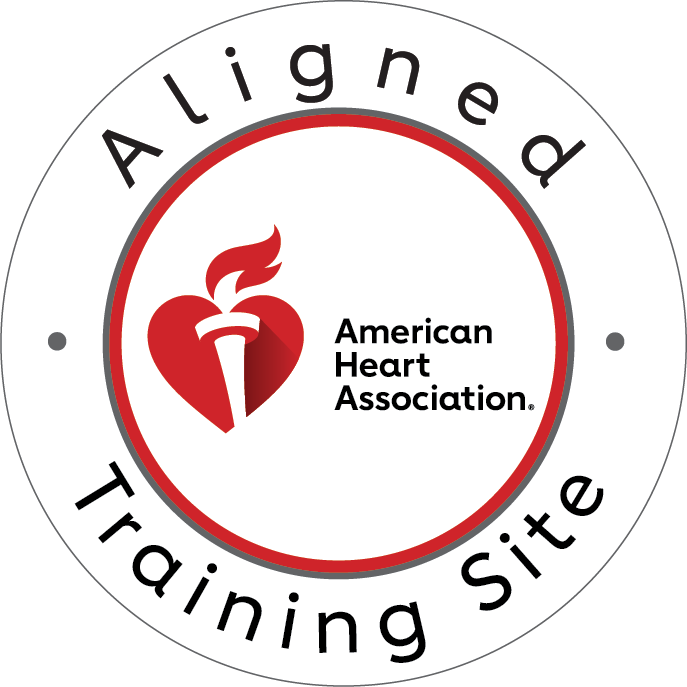Maintaining current CPR and BLS certifications is crucial for healthcare professionals and first responders in Tampa. Whether you’re a nurse, EMT, or healthcare provider, staying certified ensures you’re prepared to save lives when every second counts. This comprehensive guide will walk you through everything you need to know about CPR and BLS renewal in Tampa, including timing, requirements, and where to get recertified quickly.
Understanding CPR and BLS Renewal Requirements
CPR (Cardiopulmonary Resuscitation) and BLS (Basic Life Support) certifications are essential credentials that require regular renewal to maintain validity. The American Heart Association sets the standard for these life-saving courses, ensuring healthcare professionals stay current with the latest emergency response techniques and protocols.
Both certifications expire after a specific period, making renewal training necessary to maintain your professional standing and legal compliance in healthcare settings. Moreover, many employers require current certifications as a condition of employment, making timely renewal critical for career continuity.
When Should CPR Be Renewed?
CPR certification renewal timing depends on the type of certification you hold. Generally, American Heart Association CPR certifications are valid for two years from the date of completion. However, it’s important to note that different organizations and course types may have varying renewal schedules.
For healthcare providers, BLS (which includes CPR training) must be renewed every two years. Additionally, some employers or licensing boards may require more frequent renewal, so it’s essential to check your specific workplace requirements. Furthermore, if you work in multiple healthcare facilities, each may have different policies regarding certification currency.
The best practice is to renew your CPR and BLS certifications at least 30 days before expiration. This buffer period prevents any gaps in certification that could affect your ability to work or respond to emergencies effectively.
What Happens If Your BLS Is Expired?
Working with an expired BLS certification can have serious consequences for healthcare professionals in Tampa. First and foremost, many healthcare facilities will not allow you to work if your BLS certification has lapsed, even by a single day. This policy protects both patients and healthcare institutions from liability issues.
Additionally, expired certifications can affect your professional license status in some states. Nursing boards and other healthcare regulatory bodies often require current BLS certification as part of license maintenance requirements. Therefore, allowing your certification to expire could potentially impact your ability to practice.
In emergencies, having an expired certification may also create legal complications. While Good Samaritan laws generally protect individuals providing emergency aid, healthcare professionals are held to higher standards and may face questions about their qualifications if their certifications are not current.
To avoid these complications, it’s crucial to track your expiration dates carefully and schedule renewal courses well in advance. Many professionals set calendar reminders six months before expiration to ensure they have adequate time to complete renewal requirements.
How Many Hours Is the AHA BLS Course?
The American Heart Association BLS course for healthcare providers typically requires approximately 4-5 hours to complete when taken as a renewal course. However, this duration can vary based on several factors, including class size, participant experience level, and whether you’re taking an initial certification or renewal course.
Initial BLS certification courses generally take longer than renewal courses because they cover more foundational material. Renewal courses focus on updates to guidelines, skill practice, and competency verification rather than teaching concepts from scratch.
The course includes both classroom instruction and hands-on practice with CPR techniques, AED usage, and choking relief methods. Participants must demonstrate competency in all required skills to receive certification, which is why the hands-on portion is so important for both learning and assessment.
Online components may also be available for some portions of the course, potentially reducing classroom time. However, all BLS courses require in-person skills testing to ensure participants can perform life-saving techniques correctly under supervision.
Step-by-Step CPR and BLS Renewal Process
Renewing your CPR and BLS certification in Tampa involves several straightforward steps. First, identify a reputable American Heart Association training center that offers renewal courses. Look for facilities that provide same-day certification to minimize disruption to your work schedule.
Next, register for a course that fits your schedule and meets your specific certification needs. Many training centers offer flexible scheduling options, including evening and weekend classes to accommodate healthcare workers’ varying shifts.
Before attending class, review any pre-course materials provided by the training center. This preparation helps ensure you’re ready for both the written and practical components of the renewal course.
During the course, actively participate in all skill sessions and ask questions if you need clarification on any techniques. The hands-on practice is crucial for maintaining muscle memory and confidence in emergencies.
After completing all course requirements, you’ll receive your new certification card, typically valid for another two years. Make sure to update your employer’s records promptly with your new expiration date.
Why Choose Same-Day BLS Recertification in Tampa
Same-day CPR and BLS renewal offers significant advantages for busy healthcare professionals in Tampa. Most importantly, it eliminates the uncertainty of waiting for certification cards to arrive by mail, which could create gaps in your credentials.
Professional training centers that offer same-day certification typically have streamlined processes and experienced instructors who can efficiently guide participants through renewal requirements. This efficiency means you can complete your renewal and return to work with minimal time away from your responsibilities.
Moreover, same-day certification provides immediate peace of mind, knowing your credentials are current and valid. This immediacy is particularly valuable if your current certification is approaching expiration or if you need to meet sudden employment requirements.
Finding Quality CPR and BLS Renewal Training in Tampa
When selecting a training provider for your CPR and BLS renewal in Tampa, several factors should guide your decision. First, ensure the training center is an authorized American Heart Association site, as this guarantees your certification will be recognized by employers and licensing boards.
Look for training centers that offer stress-free, hands-on learning environments. Adult learners, particularly experienced healthcare professionals, benefit from practical, scenario-based training rather than lecture-heavy approaches.
Additionally, consider the instructor qualifications and class sizes. Smaller classes often provide more individualized attention and better opportunities to practice skills. Experienced instructors can also provide valuable insights and tips based on real-world emergency response experience.
Call to Action: Get Your CPR Certification in Tampa Today
Don’t let your life-saving certifications expire. CPR Tampa is an American Heart Association training site that offers same-day initial certifications and renewal in BLS for Healthcare Providers, ACLS, PALS, and CPR and First Aid courses. All classes are stress-free and hands-on, making CPR Tampa the best choice for CPR certification in Tampa.
Whether you need BLS recertification in Tampa or any other American Heart Association course, CPR Tampa provides the flexible, professional training you need to maintain your credentials and confidence in emergencies. Contact CPR Tampa today to schedule your renewal course and ensure your certifications stay current.
Take action now – your patients, colleagues, and community depend on your readiness to respond when emergencies occur. Don’t wait until the last minute; secure your spot in a renewal course today and maintain the highest standards of emergency preparedness in your healthcare career.





